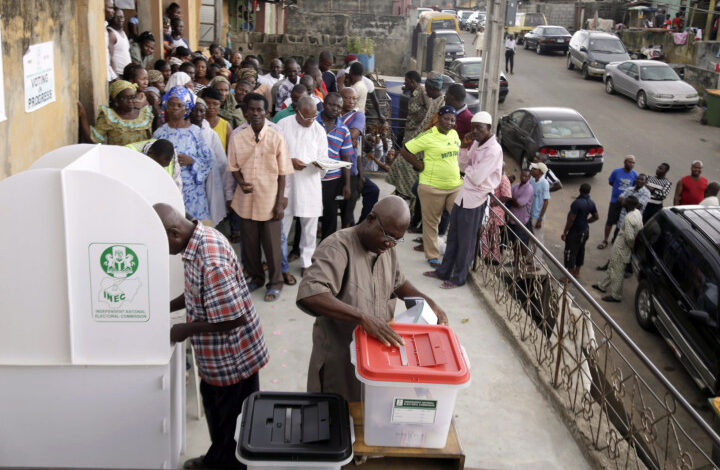News
Why there’s voter apathy in Nigeria – Don

A don, Dr Mutiat Oladejo, has identified monopoly of power and lack of proper local government system as part of the reasons behind voter apathy in Nigeria.
Oladejo, of Department of History, University of Ibadan, stated this in an interview with our correspondent in Ibadan on Wednesday, while analysing the poor turnout of voters in the recently held general elections.
She said that the lack of interest in the voting process, as displayed by most Nigerians, showed that they were no longer enthusiastic about those governing them.
According to her, most politicians are not interested in bringing succour to the people, but are rather interested in the kind of strategies they will use to achieve victory at all cost.
“Every four years, elections hold but people don’t see anything in terms of good governance which should motivate them or serve as incentives to vote.
“I think there should be a constitutional provision that will mandate people to vote on election days.
“Furthermore, the problem of insecurity of lives and property cannot be overlooked.
“In order to achieve victory, some political parties cause mayhem and even kill to intimidate citizens who are likely to vote for opposition parties.
“For this reason, people will consider their security as paramount as against going out to vote in an election,” she said.
The don noted that the high rate of unemployment in the country could also contribute to the unwillingness of people to exercise their civic responsibilities.
According to her, there are hundreds of thousands of unemployed and under-employed graduates in Nigeria, who, being dissatisfied with the condition of things, are venting their anger by refusing to vote.
“Many of these university and polytechnic graduates are in their 30s, but are still living with and being fed by their parents.
“Assuming there is a functional local government system, people would have been acquainted with the political system and the issue of apathy will not arise during elections.
“Most of our leaders need to be given orientation about governance before being allowed to run the affairs of the country.
“Youths are not being allowed to be involved in participatory government, which stems from the grassroots.
“In order to monopolise power, some state governors have killed the local government system by allowing those with no knowledge of governance to be in charge of local councils.
“Government is a process and it has to trickle down from the top,” she said.
Oladejo also noted that there was an increase in urbanisation and cosmopolitanism, both of which might also have telling effect on electoral process.
“New areas, neighbourhoods, estates and so on are springing up every now and then, but governance is not expanding to address their needs. This can also encourage voter apathy,” the don said.




 Davido's Net Worth & Lifestyle
Davido's Net Worth & Lifestyle 
